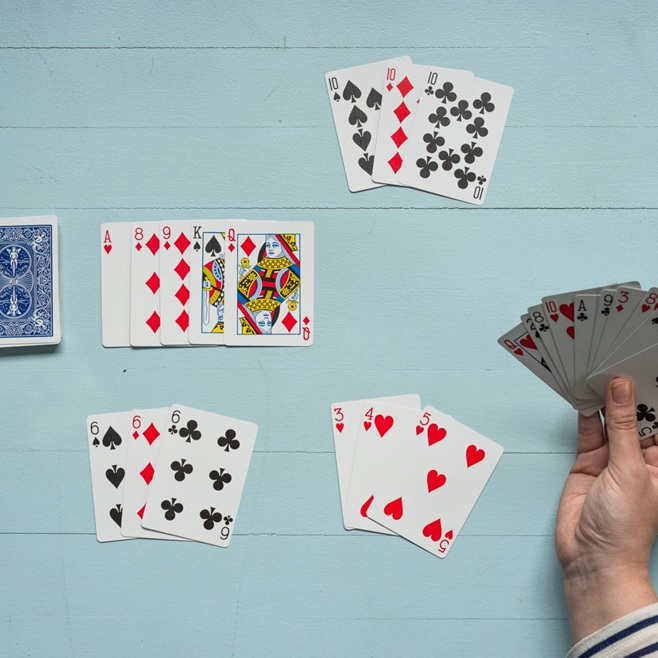Poker is much more than just a card game; it is a complex dance of psychology, strategy, and chance that has captivated players around the world for centuries. Its allure lies in the delicate balance between skill and luck, where understanding human nature can be just as crucial as knowing the rules. From smoky backroom games to the glittering stages of international tournaments, poker embodies a unique blend of tension, excitement, and intellectual challenge that continues to resonate with both casual players and professional gamblers alike.
The origins of poker are as layered and mysterious as the game itself. While many trace its roots to 19th-century America, poker is widely considered to be an amalgamation of various card games from Europe and Asia. Elements reminiscent of the Persian game As-Nas and the French game Poque seem to have converged in the Mississippi River region during the early 1800s, laying the groundwork for modern poker. Over time, the game evolved, adapting to cultural influences and shifting tastes, ultimately establishing itself as a staple of American gambling culture and, later, a global phenomenon.
At its heart, poker is a game of incomplete information. Unlike games such as blackjack, where players can see their own cards and calculate odds against a dealer’s up card, poker players must navigate a landscape where much remains hidden. The community cards shared among players provide some clues, but the cards in opponents’ hands are veiled in mystery. This uncertainty makes poker a battlefield of inference and deception, where players bluff, read tells, and manipulate betting patterns to outwit their rivals.
The most popular variant, Texas Hold’em, epitomizes this dynamic. Each player receives two private cards, then uses them in conjunction with five communal cards dealt face-up on the table to form the best five-card hand. Betting rounds punctuate the deal, allowing players to fold, call, raise, or bluff, which introduces layers of strategic complexity. Success demands mastery of probabilities, patience, and emotional discipline. A skilled player knows when to be aggressive, when to fold, and when to bluff convincingly, all while maintaining a poker face that reveals nothing.
Poker’s appeal extends far beyond the mechanics of the game. It is a social ritual that transcends borders and backgrounds, fostering camaraderie and competition in equal measure. The shared experience of sitting around a table, whether physical or virtual, creates a charged atmosphere where fortunes can change with a single card. This social dimension is particularly evident in tournaments, where players from disparate walks of life converge, united by their love of the game and the pursuit of glory.
The rise of televised poker and online platforms has transformed poker from a niche gambling activity into a mainstream cultural phenomenon. The early 2000s “poker boom,” sparked by Chris Moneymaker’s unlikely victory at the World Series of Poker, demonstrated that amateur players could triumph against seasoned professionals. This democratization, fueled by internet poker rooms and accessible tutorials, has expanded poker’s reach to millions worldwide. Online poker offers unprecedented convenience and variety, enabling players to compete across multiple tables, study opponents’ tendencies, and hone their skills with tools unavailable in traditional settings.
Yet, this digital shift also introduces new challenges. The anonymity and speed of online play require heightened vigilance against cheating, collusion, and other unethical practices. Regulators and operators have responded by developing sophisticated security protocols and player verification methods to protect the integrity of the game. Moreover, the fast pace of online poker demands a refined mental focus and adaptability, as players confront a broader spectrum of playing styles and strategies.
Psychology remains the cornerstone of poker mastery. Beyond knowing hand rankings and odds, great players excel at reading subtle behavioral cues—microexpressions, timing tells, and betting patterns—that reveal an opponent’s confidence or hesitation. This psychological warfare elevates poker from mere chance to a nuanced contest of wills. The ability to control one’s emotions, manage stress, and maintain a consistent demeanor under pressure is what separates novices from champions.
Moreover, poker teaches valuable life lessons that extend beyond the felt table. Patience, risk assessment, decision-making under uncertainty, and emotional resilience are cultivated through repeated play. The game’s inherent unpredictability mirrors real-life challenges, where outcomes often hinge on factors beyond one’s control. Learning to navigate such uncertainty with calm and strategic thinking is a skill of lasting value.
Despite its allure, poker is not without its pitfalls. The thrill of the game can sometimes lead to compulsive behavior, financial loss, and personal difficulties. Responsible gaming practices, including setting limits, self-awareness, and seeking support when needed, are essential to preserving poker’s positive aspects. The poker community increasingly advocates for such awareness, promoting education and resources to help players enjoy the game sustainably.
In literature and popular culture, poker frequently symbolizes themes of risk, cunning, and the human condition’s unpredictability. From classic novels to modern films, poker scenes often serve as metaphors for strategic life choices and the dance between fate and free will. This cultural resonance underscores why poker remains more than a game; it is a mirror reflecting the complexities of human interaction and decision-making.
In conclusion, poker stands as a timeless testament to the interplay of chance, skill, and psychology. Its rich history, strategic depth, and social vibrancy ensure its continued appeal across generations. Whether played casually among friends, in high-stakes tournaments, or on digital platforms, poker offers a uniquely challenging and rewarding experience. It invites players not only to test their intellect and nerve but also to engage in a shared human drama where every hand dealt is a story waiting to unfold. Through poker, we glimpse the thrill of uncertainty and the power of strategy—a compelling reminder of the enduring allure of this extraordinary card game.







